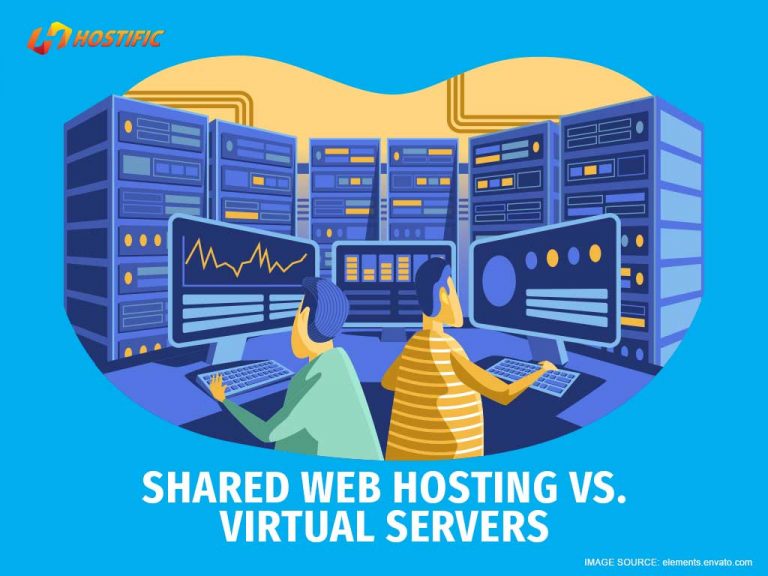Essentially, all web hosting services carry out the same core task; they provide storage for the files and data that make up your website. What separates them are their functions and features. Therefore, the hosting plan that you choose plays a significant role in the security, ranking, performance, and uptime of your website. Today, we’ll explore VPS hosting and shared web hosting cost, performance and more to help you can make an informed decision for your website.
Choosing the right web hosting solution can be a bit difficult especially if you are a newbie to web hosting. That’s because there are several hosting options to choose from as well as a growing number of companies that web hosting services.
As a new website owner, you may not need all the power, bandwidth and storage of a dedicated server. As such shared hosting and VPS are great options for beginners. You can later upgrade from shared plan or scale up your VPS once your site starts requiring more resources.
Table of Contents
What is shared web hosting
With shared hosting, one server is divided into multiple accounts and each account is leased to a website. So that’s a single server for multiple users. As a result, shared hosting offers limited bandwidth, RAM, administration and performance capabilities. Everyone shares the resources and if one tenant on the server uses up a significant amount of the resources the others sites are affected.
Pros
- It’s inexpensive.
- Simple and easy to use by even beginners.
- You’ll manage the security, upgrades and maintenance of the server.
Cons
- It can be extremely slow because several other websites are running on the same server.
- There are security issues.
- Because of its limited resources, it’s difficult to scale.
What is virtual private server?
A Virtual Private Server (VPS) divides a single server into smaller separate private servers that host multiple websites. While shared hosting offers an account on a server, VPS provides a virtual server for each website. As a result, VPS users do not share resources with others and are unaffected by whatever happens on other sites sharing the main server. It also gives you the chance to scale.
Pros
- You purchase the resources you need.
- Offers more security than shared hosting.
- It has much more resources allocated to it than shared hosting, which makes it fast in terms of speed.
- The ability to control and customise your server to meet your exact needs
- It is scalable.
Cons
- It more expensive when compared to shared hosting.
- Unmanaged VPS plans require at least basic technical expertise to configure.
VPS and shared web hosting cost, performance and more
So far, you should already be able to recognise some differences between shared hosting and VPS. If you are still in the valley of indecision as it relates to which to choose, measure then by their performance, resource allocation and security among other things. To help you with that, here’s a breakdown of how well VPS and Shared hosting do when compared in the following categories.
Web hosting cost
Web hosting cost varies from plan to plan. It also takes into consideration whether or not you are paying for additional premium features.
Shared Hosting
Shared web hosting cost is highly attractive to new website owners. In fact, it is the most inexpensive web hosting service available. You can defray the costs associated with running and maintaining the server because you’re sharing server space with thousands of other websites.
VPS Hosting
With VPS hosting, since you can pay just for the resources you need the cost will vary. It is, however, more expensive than shared hosting. You can also pay more for premium web hosting features with your VPS. This will help you improve your site’s performance and increase your overall online success.
Performance
More resource increases performance. For shared hosting, the performance is dependent on the technologies your web host implements for speed, such as SSDs, caching software, and CDN. With VPS you will have more designated resources and more control over the performance factor.
Shared Web Hosting
Since you share all your resources, it’s possible for your website speed and performance to be affected by a spike in traffic or the hacking of another website on the shared server. Even without any of these issues, you have a limited amount of bandwidth, storage, and other resources. That means there will still be a limit on how well your website performs. However, if the site you operate doesn’t require a lot of resources then shared hosting can still work well for you.
With VPS Hosting
With VPS, you will have more resources. More resources influence better performance. Therefore, VPS offers higher overall performance than shared hosting because it has a greater allocation of resources. This gives you the flexibility to configure your server’s applications and software to suit your needs. VPS works well for persons who manage multiple websites or have high traffic demands.
Scalability
Scalability is another factor that tips the scale in the shared vs virtual server face-off. VPS gives you the opportunity to scale up as much as possible, shared hosting doesn’t.
Shared Web Hosting
Shared hosting is a great start for all types of websites. It’s easy to configure and as such is usually recommended to beginners. Its drawback is the fact that once your website starts growing and requiring more resources, you will face scalability issues.
What do you do when you are close to using up all your shared storage, or user demand is beginning to surpass your server space? It is time to upgrade to VPS or another premium web hosting plan.
VPS Hosting
With VPS, you will not have scalability issues. It scales both quickly and easily. Whenever your shared server is close to maxing out its resources, simply upgrade to a VPS hosting plan. If you are launching a new website that’s expected to grow quickly, you can invest in a VPS from the onset. Though it costs more than shared hosting, it is a worthwhile investment.
Server resources
When it comes on to server resources shared hosting customers share all the resources. With dedicated hosting you get a dedicated server for your site. VPS is smack between the two; this is where a number of virtual servers act as their own dedicated hardware entities.
Shared Hosting
As is expected, there are limitations when you share resources with others. Shared hosting offers a set allocation of CPUs, memory/RAM, and disk space. Your website will not be able to go beyond that maximum allocation. However, if you have a small basic website that doesn’t require a lot of processing power or space, this won’t be an issue.
VPS Hosting
One of the things that set VPS apart from shared hosting is that it offers clients private disc space. It also has a higher availability of overall resources. If you are wishing to expand your business and facilitate a better user experience for customers, VPS is the way to go.
Security
The security of your site’s data and the information of your customers is of paramount importance.
Shared Hosting
All web hosting services have to offer some level of security, so shared hosting does offer security features. However, it’s not the most secure and more likely to be affected by security breaches than VPS. However, if your website does not deal with customers’ personal information shared hosting should work just fine. Just ensure that you back up your website.
VPS Hosting
VPS hosting offers more robust security features to help keep your site and customer information secure. If your business deals with and needs to protect personal data, then VPS hosting is worth considering.
Final thoughts
Persons running websites that are static in nature will find shared hosting is a good hosting solution. Shared hosting also works well for blogs and start-ups. While businesses and individuals who operate online stores, small to medium size companies or large personal blogs will find VPS hosting to be the better option. VPS provides increased security, greater performance and more flexibility to customise your server and grow your brand.
If you don’t have a website just yet, start by registering your domain name with us at Hostific.com. All of our plans offer premium web hosting with cPanel along with our trusted intuitive website building tool. You’ll have your striking professional website up in no time. You can also benefit from our website monitoring, SEO and backup tools among others.






